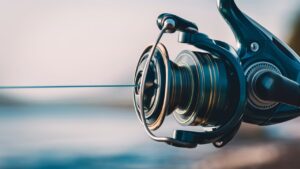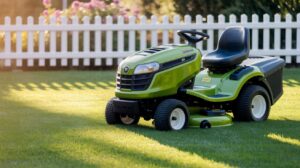You should waterproof your tent to protect it from moisture, leaks, and extend its lifespan. Proper waterproofing helps maintain the tent’s integrity during outdoor use.
Recommended Best Waterproof Tent Spray 2024-2025
| Recommendation | Product |
| Best Overall | KIWI Camp Dry Heavy-Duty Water Repellent |
| Popular Choice | Scotchgard Outdoor Water Shield |
| Best Value | Nikwax Tent & Gear Care |
| Best Budget | GEAR AID Seam Grip TF Tent Waterproofing |
| Another Excellent Pick | STAR BRITE Waterproofing Spray |
Whether you’re camping in the mountains, forests, or by the beach, waterproofing your tent ensures a dry and comfortable experience, especially during unexpected rain showers. It’s a simple yet essential step to safeguard your shelter and belongings from the elements.
Additionally, waterproofing your tent can prevent mold, mildew, and odors from developing, making your camping trips more enjoyable and stress-free. So, investing time in waterproofing your tent is a smart decision to enhance your outdoor adventures.

Introduction To Tent Waterproofing
| Do I Need to Waterproof My Tent |
| Introduction to Tent Waterproofing |
| The Importance of a Dry Shelter |
| Waterproof vs. Water-Resistant Tents |
Ensuring your tent is waterproof is crucial for a dry camping experience. Most tents are water-resistant, not fully waterproof. Waterproofing your tent involves seam sealing and applying coatings to prevent leaks. High-quality tents are less likely to leak in heavy rain. Proper care and maintenance help protect your tent from water damage. Always check your tent’s weatherproofing before heading outdoors.
Identifying The Need To Waterproof
|
Signs Your Tent Needs Reproofing: Look for visible water droplets inside the tent, damp or wet patches on the fabric, musty odor, or water seeping through seams. |
|
Common Leak Points in Tents: Check the seams, zippers, windows, doors, and floor for potential leaks. Properly seal these areas to prevent water infiltration. |
The Science Behind Tent Waterproofing
Materials Used in Tent Construction: Tents are typically constructed using waterproof and water-resistant materials such as nylon, polyester, and canvas. These materials are then treated with waterproof coatings to enhance their waterproof properties.
How Waterproof Coatings Work: Waterproof coatings, such as polyurethane, silicone, or PVC, are applied to the fabric to create a waterproof barrier. These coatings prevent water from penetrating the fabric, keeping the interior of the tent dry and comfortable.
Waterproofing New Vs. Old Tents
Waterproofing New vs. Old Tents – When it comes to waterproofing new tents, it’s essential to check the manufacturer’s instructions. Some new synthetic tents come pre-treated with waterproof coatings, but it’s still wise to seam seal them. Conversely, older tents require regular maintenance to ensure they remain waterproof. Should New Tents Be Waterproofed? – New tents may not require immediate waterproofing, but seam sealing is recommended. Regular inspections and maintenance are crucial to uphold their waterproofing. Maintenance for Older Tents – Older tents often need reproofing to maintain their waterproof capabilities. Seam sealing, reapplying waterproof coatings, and ensuring proper drying after use are essential for older tents.
Step-by-step Waterproofing Process
Waterproofing your tent is essential to ensure a dry and comfortable camping experience. Seam sealing is a crucial step in the waterproofing process. Make sure to carefully inspect all seams and apply a reliable seam sealer to prevent any water from seeping through. Applying urethane coatings to the outer layer of the tent fabric is another important step. This coating provides an additional layer of protection against moisture. Refreshing the DWR coatings on your tent fabric will help to maintain its water repellent properties. Regularly reapplying DWR coatings will ensure that water beads off the fabric instead of being absorbed. By following these steps, you can effectively waterproof your tent and enjoy your outdoor adventures without worrying about getting wet.
Timing Your Waterproofing Efforts
Timing Your Waterproofing Efforts is crucial for maintaining the longevity of your tent. Best Conditions for Waterproofing include a dry, sunny day with low humidity. If you find yourself in an Emergency situation just before rain, prioritize seam sealing and quick patching to prevent water ingress.
Long-term Tent Care
Proper care of your tent is essential for long-term use. While modern synthetic tents usually come with an impermeable coating, seam sealing may be required to prevent leaks. It is always wise to ensure your tent is properly waterproofed, especially if you are unsure about the weather conditions during your camping trip.
| Ensuring your tent is waterproof is crucial for longevity. |
| Regularly clean your tent to prevent damage and mildew. |
| Store your tent dry to avoid mold and mildew growth. |
| Avoid common mistakes like using the wrong cleaners or storing a wet tent. |
Additional Protective Measures
To ensure your tent remains waterproof, consider applying additional protective measures, especially if it’s not a high-quality or new tent. High-quality tents are made to the highest specifications and are already waterproof. However, most tents are water resistant, so adding extra coverage can help prevent rainwater from penetrating.
| It is important to waterproof your tent to protect against rain and moisture. |
| Using tarps and footprints can provide additional protection for your tent. |
| Consider using a tent cover when camping in extreme weather conditions. |
Frequently Asked Questions
Do Modern Tents Need Waterproofing?
Modern tents typically come pre-treated with waterproof coatings, eliminating the need for additional waterproofing.
Do All Tents Leak In Heavy Rain?
Not all tents leak in heavy rain. High-quality tents are designed to be waterproof and resist leakage.
Are Tents 100% Waterproof?
Yes, most tents are water resistant, not waterproof. Additional waterproofing may be needed for heavy rain.
What Happens If You Don’t Dry Your Tent?
If you don’t dry your tent, it can lead to mold and mildew growth, which can damage the fabric and cause a bad odor. Additionally, water left inside the tent can weaken the seams and reduce the tent’s overall lifespan.
It’s important to properly dry and store your tent after each use to ensure its longevity.
Conclusion
Waterproofing your tent is essential to protect yourself and your belongings from the elements. Regular waterproofing maintenance can extend the life of your tent and ensure a dry and comfortable camping experience. By taking the necessary steps to waterproof your tent, you can enjoy your outdoor adventures with confidence and peace of mind.








